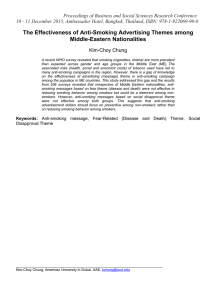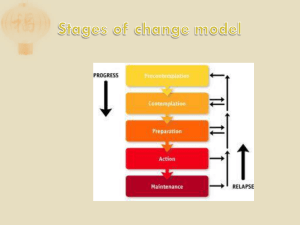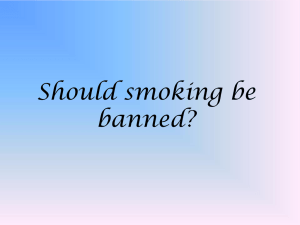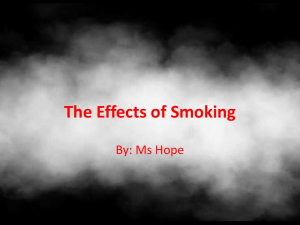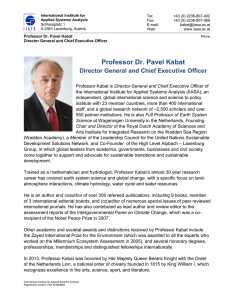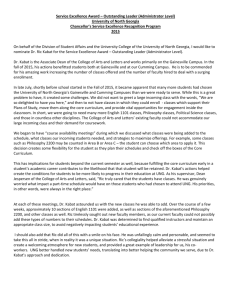Chapter 7 Exercise - Politics of smoking
advertisement
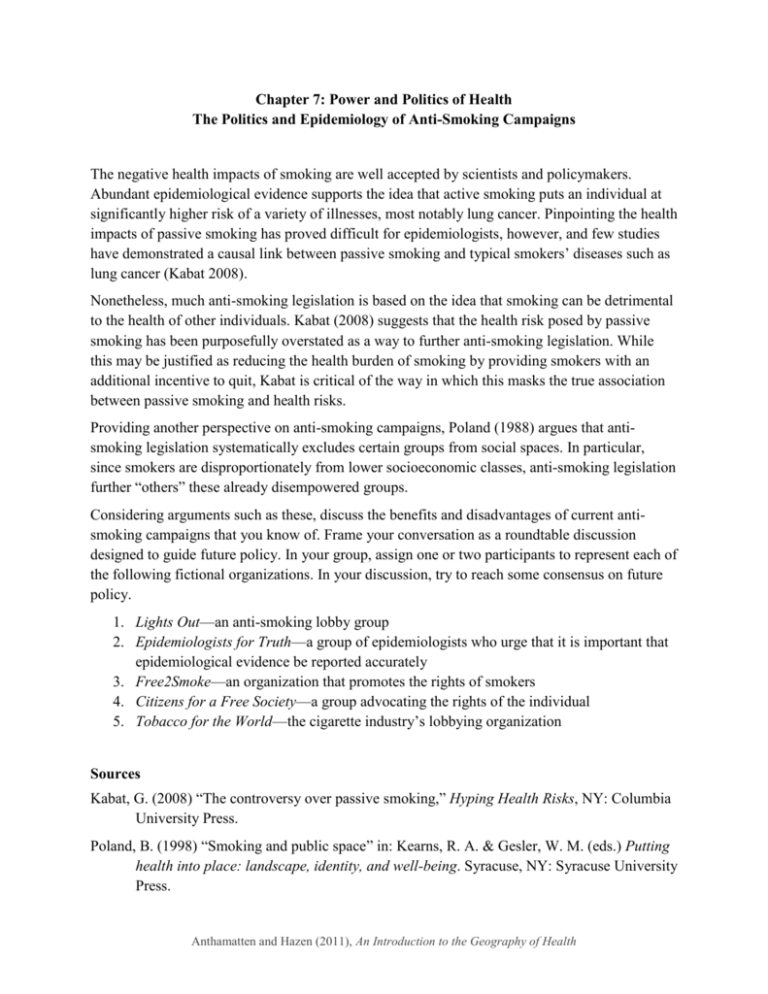
Chapter 7: Power and Politics of Health The Politics and Epidemiology of Anti-Smoking Campaigns The negative health impacts of smoking are well accepted by scientists and policymakers. Abundant epidemiological evidence supports the idea that active smoking puts an individual at significantly higher risk of a variety of illnesses, most notably lung cancer. Pinpointing the health impacts of passive smoking has proved difficult for epidemiologists, however, and few studies have demonstrated a causal link between passive smoking and typical smokers’ diseases such as lung cancer (Kabat 2008). Nonetheless, much anti-smoking legislation is based on the idea that smoking can be detrimental to the health of other individuals. Kabat (2008) suggests that the health risk posed by passive smoking has been purposefully overstated as a way to further anti-smoking legislation. While this may be justified as reducing the health burden of smoking by providing smokers with an additional incentive to quit, Kabat is critical of the way in which this masks the true association between passive smoking and health risks. Providing another perspective on anti-smoking campaigns, Poland (1988) argues that antismoking legislation systematically excludes certain groups from social spaces. In particular, since smokers are disproportionately from lower socioeconomic classes, anti-smoking legislation further “others” these already disempowered groups. Considering arguments such as these, discuss the benefits and disadvantages of current antismoking campaigns that you know of. Frame your conversation as a roundtable discussion designed to guide future policy. In your group, assign one or two participants to represent each of the following fictional organizations. In your discussion, try to reach some consensus on future policy. 1. Lights Out—an anti-smoking lobby group 2. Epidemiologists for Truth—a group of epidemiologists who urge that it is important that epidemiological evidence be reported accurately 3. Free2Smoke—an organization that promotes the rights of smokers 4. Citizens for a Free Society—a group advocating the rights of the individual 5. Tobacco for the World—the cigarette industry’s lobbying organization Sources Kabat, G. (2008) “The controversy over passive smoking,” Hyping Health Risks, NY: Columbia University Press. Poland, B. (1998) “Smoking and public space” in: Kearns, R. A. & Gesler, W. M. (eds.) Putting health into place: landscape, identity, and well-being. Syracuse, NY: Syracuse University Press. Anthamatten and Hazen (2011), An Introduction to the Geography of Health
